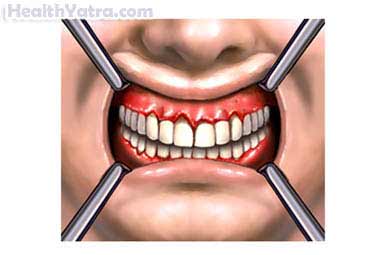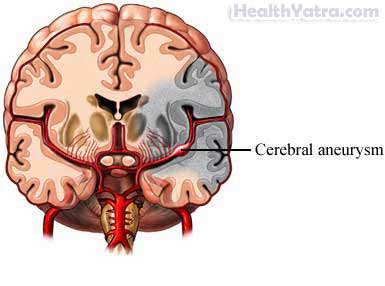Definition
Behcet’s disease is a rare, chronic disorder involving inflammation of blood vessels throughout the body. It is marked by recurrent oral and genital ulcers and eye inflammation.
Causes
The cause of Behcet’s disease is unknown. It is believed to be caused by an autoimmune reaction. This occurs when the body’s immune system attacks its own tissue by mistake. This autoimmune abnormality may be inherited. An environmental trigger, such as a specific virus or bacterium, may activate the disease in people susceptible to it.
Risk Factors
Although the exact cause of Behcet’s disease is unknown, some groups of people are more likely to develop the condition than others. Factors that may increase your risk of Behcet’s include:
- Location: the Middle East, Asia, and Japan
- Sex:
- In the US, men are more likely than women to develop this condition.
- In the Middle East, Asia, and Japan, women are more likely than men to develop Behcet’s.
- Age: 20s and 30s
Symptoms
Symptoms of Behcet’s disease can vary from mild to very severe. Symptoms tend to appear, heal, and then recur (referred to as a flare) frequently over months or years. The most common symptoms of the disease are:
- Oral sores
- Affect almost all people with the disease
- Usually are the first to appear
- Usually last for 10 to 14 days
- Can be painful
- Can cause scarring

- Genital sores
- In men: appear on the penis and/or scrotum
- In women: appear on the vulva or within the vagina
- Can be painful
- Can cause scarring
- Uveitis—inflammation of the middle part of the eye, including the iris
- Tends to cause eye redness, blurred vision, sensitivity to light, and watering eyes
- If not treated, can cause partial vision loss or blindness
- Arthritis —inflammation of joints
- Tends to be painful
- Usually does not cause permanent joint damage
- Skin problems, such as sores
- May appear as red, raised sores or bumps, or may be flat (flush with the skin)
- Usually appear on the legs and upper torso
Other symptoms of the disease may include:
- Severe fatigue during a flare
- Blood clots
- Caused by thrombophlebitis (inflammation of veins), usually in the legs
- Can cause severe complications if not treated quickly
- Aneurysms, or severely dilated blood vessels
- May rupture and cause severe consequences
- Heart problems, such as:
- Abnormal heart rhythms
- Missed heartbeats
- Early heartbeats
- Inflammation of the heart muscle ( myocarditis)
- Central nervous system problems
- For example, meningoencephalitis, which is inflammation of the brain and membrane that lines the brain
- May result in seizures, confusion, strokes, memory problems, headaches

- Digestive problems
- Causes ulcers and inflammation of the digestive tract (rarely)
Diagnosis
Diagnosing Behcet’s disease is very difficult because:
- Symptoms are similar to those of many other diseases.
- Symptoms often appear very slowly, over months or years.
- There is no specific test to confirm the disease.
A doctor may suspect Behcet’s disease if oral sores appear at least three times within a year, and at least two of the following recurring symptoms appear:
- Eye inflammation
- Genital sores
- Skin sores
If Behcet’s disease is suspected, your doctor will do tests to rule out other diseases with similar symptoms. Also, you may have a pathergy skin test. For this test, your skin is pricked with a small needle. If you have Behcet’s disease, a bump will develop at the site of the skin prick. However, this test is not conclusive. Many people with the disease do not have a reaction to the skin prick.
Treatment
There is no cure for Behcet’s disease however spontaneous regression may occur. Treatment is aimed at limiting and preventing complications from symptoms. With proper treatment, the disease can usually be managed fairly well. Treatment includes medications, rest, and exercise.
Medication
Both topical and oral medications are used.
Topical medications include creams, lotions, and mouth rinses that contain corticosteroids (to cut down on inflammation) and/or anesthetics (to decrease pain). These are applied to sores to reduce inflammation and pain.
Oral medications, include:
- Oral corticosteroids—to reduce inflammation and pain
- Immunosuppressive drugs—to help control the overactive immune system. These may include:
- Interferon
- Azathioprine
- Chlorambucil
- Cyclosporine
- Colchicine
- Methotrexate
- Dapsone
- Infliximab
- Thalidomide
Many of the drugs used to treat Behcet’s disease can cause severe side effects. If you are taking these medications your doctor must closely monitor you.
Rest and Exercise
General guidelines include:
- Rest when symptoms flare to help speed healing.
- Engage in moderate exercise when symptoms recede to help keep joints flexible and strong.
Prevention
There are no guidelines for the prevention of Behcet’s disease because the exact cause is unknown.
Behcet Disease Treatment in India – Page Keywords:
Behcet Disease Definition, Behcet Disease Causes, Behcet Disease Symptoms, Behcet Disease Treatment in India, Behcet Disease Treatment Cost in India, Behcet Disease Surgery Cost, Top Behcet Disease Treatment Hospital, Top Behcet Disease Treatment Doctor in India, Behcet Disease Meaning in Marathi, Behcet Disease Treatment Near me, Behcet Disease Complications, Travel India for Behcet Disease Treatment, Behcet Disease Treatment in Arab Countries, Behcet Disease Treatment in Bangladesh, Behcet Disease Treatment in Dhaka, Behcet Disease Meaning in Bengali, Behcet Disease Meaning in Arabic, Behcet Disease Meaning in Hindi, Behcet Disease Treatment in Bahrain, Behcet Disease Treatment in Egypt, Behcet Disease Treatment in Iraq, Behcet Disease Treatment in Jordan, Behcet Disease Treatment in Kuwait, Behcet Disease Treatment in Lebanon, Behcet Disease Treatment in Saudi Arabia, Behcet Disease Treatment in United Arab Emirates, Behcet Disease Treatment in Sudan, Behcet Disease Treatment in Tunisia, Behcet Disease Treatment in Nepal, Behcet Disease Treatment cost,
